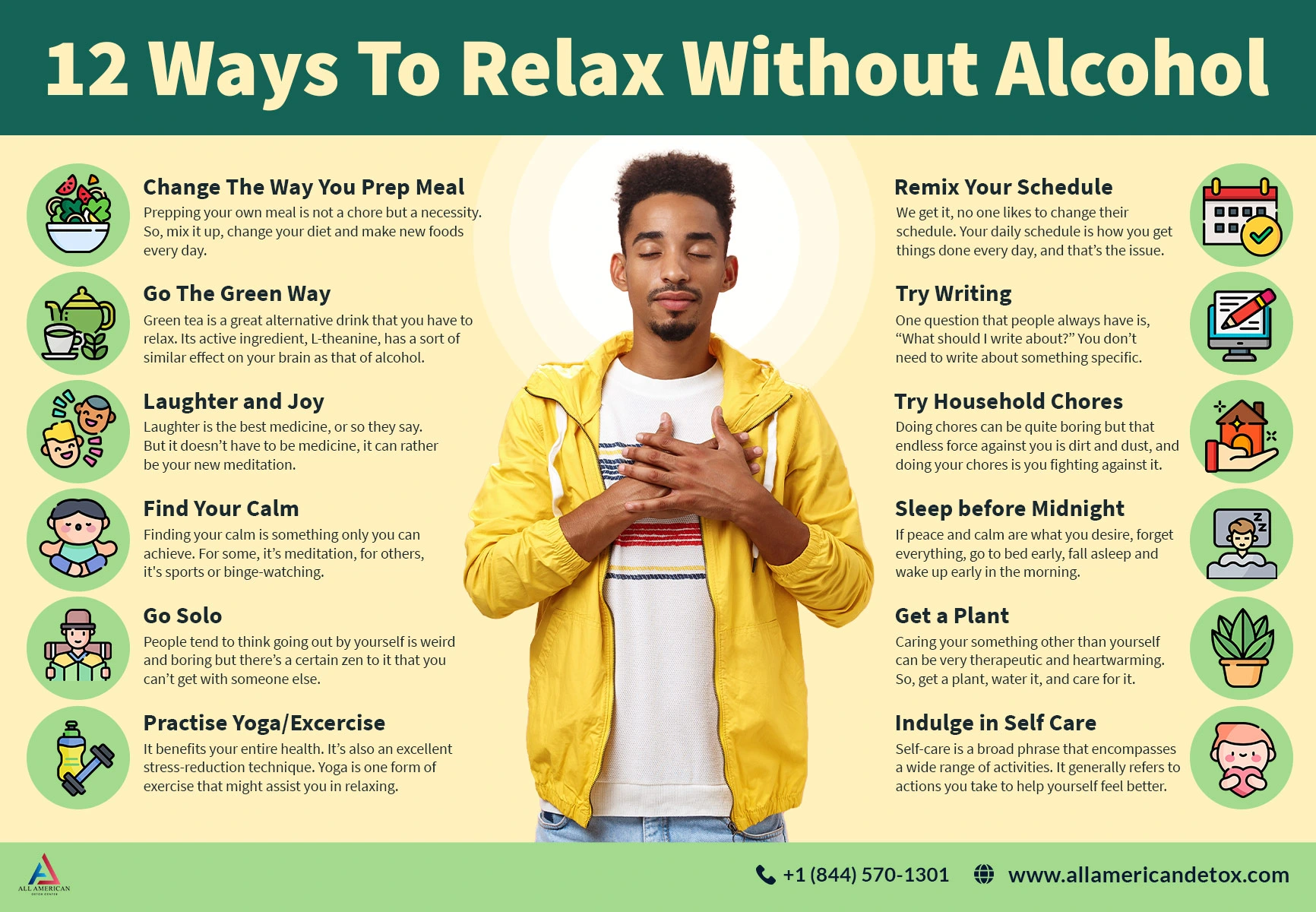Have you or a loved one been struggling with a drinking problem for some time? Despite seeming innocent at first, alcohol can quickly become part of your daily routine and before you know it, you are having several drinks just to get through the day.
Despite being legal, alcohol poses several risks to your health: the worst of which occur when you drink too much. In the short term, binge drinking can lead to dangerous and irresponsible behaviors such as driving while intoxicated, blacking out, fighting or overdosing. In the long-term, alcohol misuse can cause heart problems, several types of cancer, memory and learning problems, poor mental health, and addiction.1
In addition, the wear on the body, heavy and long-term drinkers seeking sobriety must also contend with alcohol withdrawals. More so than any other drug, the side-effects of alcohol withdrawal are destructive and potentially lethal.
Fortunately, with proper care and dedication, it is possible to overcome alcohol addiction once and for all. Read on to learn more about the symptoms, treatment and timeline of alcohol withdrawal.
Alcohol Withdrawal Symptoms
As a central nervous system depressant, alcohol blocks glutamate receptors and increases the inhibitory receptors in the brain. This decreases neuronal firing and slows down the brain’s response to stimuli.2 This is the reason we feel relaxed when we drink. It’s also the reason why we get dizzy and exhibit poor judgement.
In cases where long term drinking occurs, brain chemistry is completely altered. When a person stops drinking, their brain can no longer regulate itself and becomes overexcited. This process is what is referred to as alcohol withdrawal.2
The symptoms of alcohol withdrawal are most pronounced for people who have abused alcohol for an extended amount of time.2 Withdrawals begin to set in within the first hour and are usually mild, however they will get worse as time goes on.
Alcohol withdrawals range from mild to severe and are physical as well as mental. Here are many of the symptoms than can occur when a person stops using alcohol.
Alcohol withdrawal Common Symptoms
- Nausea and Vomiting
- Difficulty falling asleep or sustaining sleep
- Fatigue
- Increased Heart rate
- Fever
- Sweating
- Anger or irritability
- Mood swings
- Anxiety
- Depression
Alcohol withdrawal Severe Symptoms
- Seizures
- Hallucinations
- Body tremors
- Cardiac Arrythmia
- Delirium tremens
- Severe dehydration
- Thoughts of suicide
Alcohol withdrawals, if not treated properly can result in permanent damage or even death. People who are older, have chronic health conditions and those who are severe or long-term drinkers are at a higher risk of experiencing complications during alcohol detoxification and may need to enroll in a medical detox program to safely detox.
Alcohol Withdrawal Timeline
There are several factors that can impact the duration of alcohol withdrawal. Among them, the number of years the person drank for, the amount of alcohol they regularly consumed, their physical and mental health state, and the presence of other substances or addictions.
6-12 Hours
During the first few hours the signs of alcohol withdrawal begin to set in. At first these early symptoms are mild and may include anxiety, nausea, changes to blood pressure, discomfort, heavy breathing and difficulty sleeping.3
12-48 Hours
During this stage some may also experience visual and auditory hallucinations and seizures.
48-72 Hours
Alcohol withdrawal symptoms peak during this time and can result in fever, quickened heart rate and high blood pressure. Out of those who experience severe withdrawal symptoms, 3 to 5 percent will develop delirium tremens: a condition that occurs as a result of heavy prolonged drinking. Symptoms of delirium tremens include:
- Extreme agitation
- Body tremors
- Seizures
- Autonomic Overstimulation (nausea, sweating and rapid heart rate)
- Hallucinations
- Changes in mental state
- Irregular heartbeat
- Dizziness and confusion
- Death
Post-acute Withdrawal (72 hours or more)
After about 5 to 7 days, withdrawal symptoms return to more manageable levels making it possible for those to leave medical care without the risk of any health complications.
From this point on, individuals experience some lingering effects called post-acute withdrawal symptoms or PAWS. These symptoms are mostly psychological and may include depression, anxiety, fatigue, brain fog, difficulty sleeping and mood swings.4
Those completing alcohol detox will also find that the urge to use alcohol remains. For this reason, enrollment in an inpatient rehab program or intensive outpatient program is highly recommended.
How Is Alcohol Withdrawal Treated
When an alcoholic is finally ready to quit, they will have to decide how to approach it. Many are convinced that quitting cold turkey with little to no support will work out fine, but as we just discussed, alcohol withdrawals have significant health risks for those that try to quit.
Medical detox programs, on the other hand, are equipped to handle the latent complications of alcohol withdrawal and can adapt treatment quickly if things start to go south. Those in medical detox also receive preventive care–they are watched around the clock, their vitals are monitored, and they are given nutritional support so that the body more properly heal itself.
When necessary, patients are also given medication to ease the discomfort of withdrawal symptoms. And in the case of a medical emergency, drugs like anti-convulsant may be administered to stop seizures.
Also Read: How to deal with depression and anxiety
Conclusion – Get Help
Attempting to quit alcohol cold turkey can be dangerous, especially if you are a heavy or long-term drinker. Alcohol abuse can drastically alter the brain leading to an overexcitement in brain activity that can cause seizures, hallucinations and delirium tremens. It can also negatively impact behavior causing irritability, mood swings, anxiety and depression.
Are you finally ready to quit drugs and alcohol once and for all? All American Detox is a drug and alcohol treatment and rehab center in Los Angeles California. Our detox and residential inpatient programs can help you overcome substance abuse in comfort and with confidence. For more information, call us today at (844) 570-1301.
Citations
Centers for Disease Control and Prevention. (2022, April 14). Drinking too much alcohol can harm your health. learn the facts. Centers for Disease Control and Prevention. Retrieved September 12, 2022, from https://www.cdc.gov/alcohol/fact-sheets/alcohol-use.htm
Newman RK, Stobart Gallagher MA, Gomez AE. Alcohol Withdrawal. [Updated 2021 Nov 13]. In: StatPearls [Internet]. Treasure Island (FL): StatPearls Publishing; 2022 Jan. Available from: https://www.ncbi.nlm.nih.gov/books/NBK441882/
Tietz, G., & Khan, G. (n.d.). Alcohol withdrawal symptoms: What you need to know. WebMD. Retrieved September 12, 2022, from https://www.webmd.com/connect-to-care/addiction-treatment-recovery/alcohol/alcohol-withdrawal-symptoms-timeline
What is post-acute withdrawal syndrome (PAWS)? What is Post-Acute Withdrawal Syndrome (PAWS)? | Hazelden Betty Ford. (n.d.). Retrieved September 12, 2022, from https://www.hazeldenbettyford.org/articles/post-acute-withdrawal-syndrome





